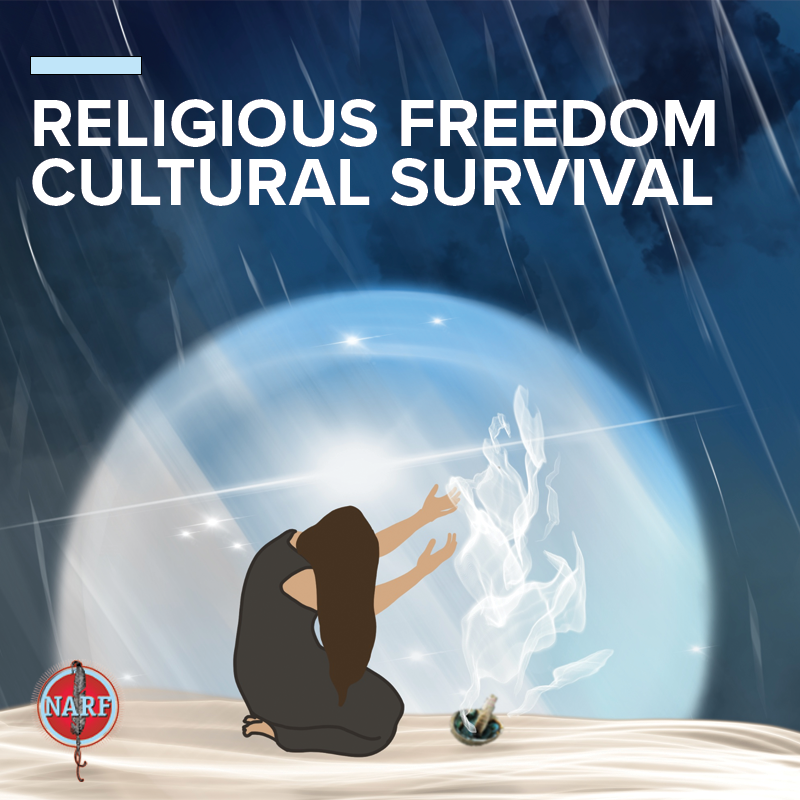The Native American Rights Fund (NARF) and the National Indian Law Library (NILL) have compiled and published an online collection of resources about the religious and cultural persecution of Native peoples in the United States. To view the collection, visit the Civilization Regulations and Policy page on the NILL website.
From 1883 to 1978, the United States made it illegal for Native people to practice their cultures and religions. Initiated through an ill-informed and heartbreakingly intolerant letter by Colorado Senator Henry M. Teller, the U.S. Department of the Interior imposed the Code of Indian Offenses onto Native people under Commissioner of Indian Affairs Hiram Price. Though Congress never passed the Code into law, the federal government adopted the Code and official U.S. policy centered on forcing Christian practices and beliefs upon Indigenous people.

The Code made participating in Native religious ceremonies a crime. The law created local courts that doled out sentences such as withholding food and rations for more than two weeks from any Native person caught practicing their religion at a dance or ceremony. The Code created a 10-day prison sentence for any Native person caught seeking spiritual advice or medicine from a tribal priest or Native doctor.
“At the time the United States adopted the Code of Indian Offenses in 1883, the American court system did not allow Native people to file lawsuits about this policy and practice. Generations of Native people and allies had to first create access to the colonizers’ courts and congresses. Only then could Native people convince Congress to repeal the Code by passing the American Indian Religious Freedom Act of 1978,” explained NARF Staff Attorney Brett Lee Shelton.
“People talk about colonization as if it happened hundreds of years ago, but it has been less than 50 years since America withdrew this sinister legal mechanism attacking Native religion and culture. Native people are still healing from this dark period of religious and cultural persecution and still working to restore our rights,” said Shelton.
Defending religious freedom and cultural survival remains one of the main issues Native people face today. Related issues include regaining or maintaining access to sacred places, and defending sacred lands and waters shared by treaty.
Learn more about these tragic cultural regulations and policies on the NILL Website.
More blog posts

